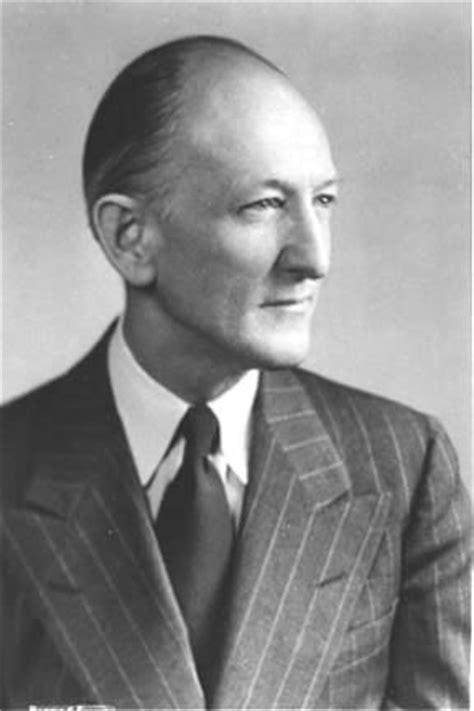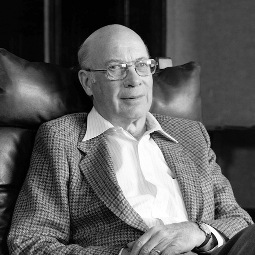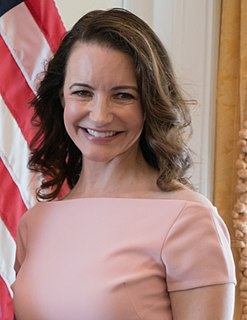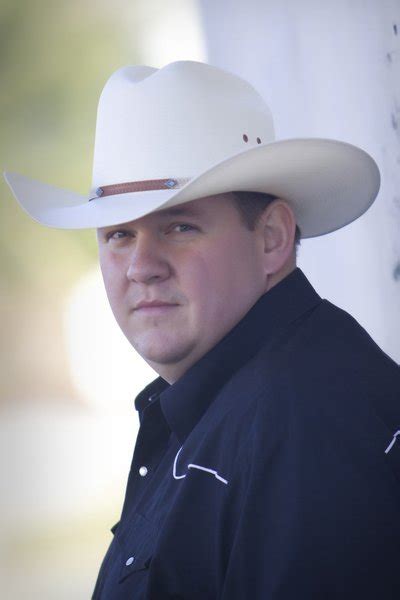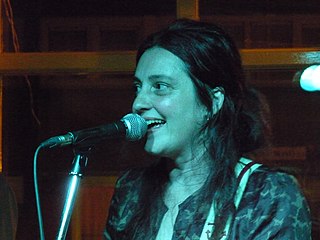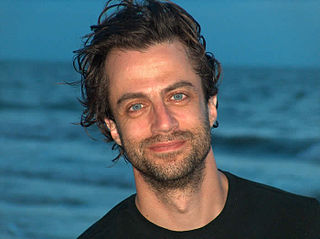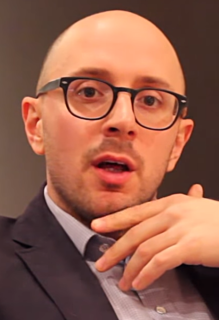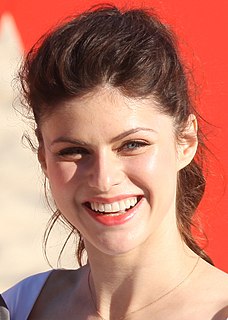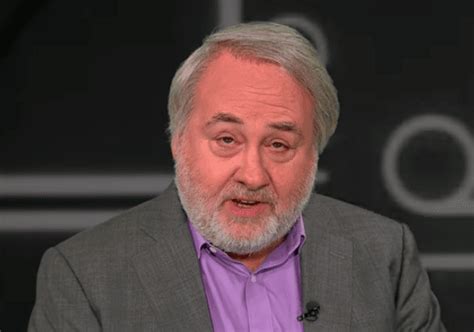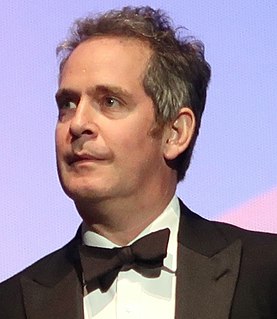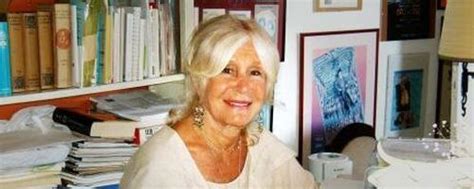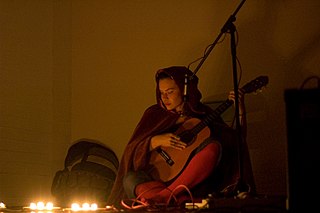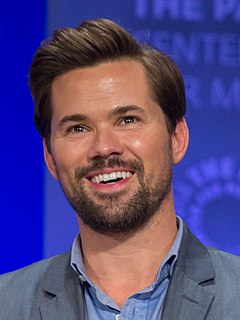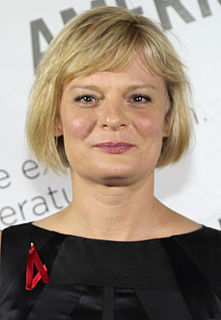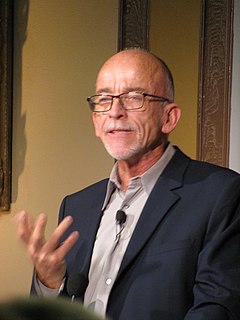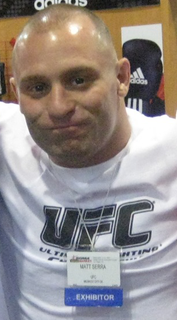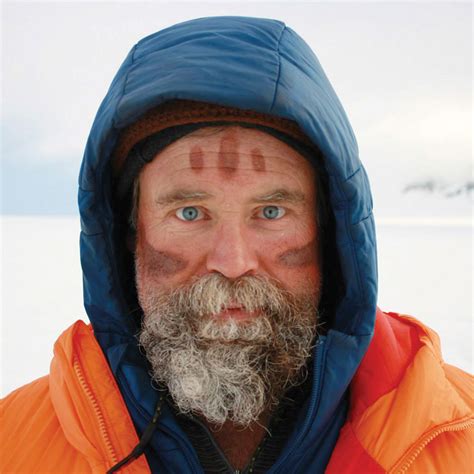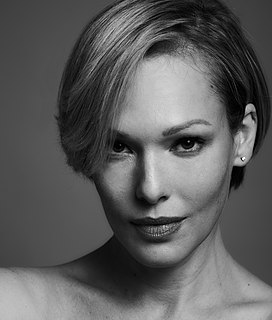Top 548 Manhattan Quotes & Sayings - Page 9
Explore popular Manhattan quotes.
Last updated on April 20, 2025.
With control of the universe at stake, a crash program is imperative.We produced the A-bomb, under the huge Manhattan Project, in an amazingly short time. The needs, the urgency today are even greater. The Air Force should end UFO secrecy, give the facts to scientists,the public, to Congress. Once the people realize the truth, they would back, even demand a crash program...for this is one race we dare not lose.
Though people could, in principle, cross national borders to reach places where their work is more highly rewarded, they are in fact prevented from doing so. As a result, huge differences also persist in the price of labor, as you can see when you get a haircut in rural India or hire a driver or babysitter in Bolivia. You can easily buy such services at one-fiftieth the price you would pay in London, Hamburg or Manhattan.
... the job [at the Manhattan Institute] gives me a platform where I can focus on the themes that I explored in both Gusher of Lies and Power Hungry: that the myths about "green" energy are largely just that, myths; that hydrocarbons are here to stay; and that if we are going to pursue the best "no regrets" policy with regard to energy, then we should be avidly promoting natural gas and nuclear energy.
Yeah, because we wanted to go back to the original tone. It's one of the original movies like The Muppet Movie, Muppets Take Manhattan, The Great Muppet Caper. Those kinds of movies. So that was really important that we hit that tone and those have a lot of cameos in them and so Jason and I started asking people and everyone we asked just wants to do it.
It seems to me that you are better off, as a writer and as an American, in a small town than you'd be in New York. I thoroughly detest New York, though I have to go there very often.... Have you ever noticed that no American writer of any consequence lives in Manhattan? Dreiser tried it (after many years in the Bronx), but finally moved to California.
Danny DeVito knows about the business from many different perspectives, because he is a producer and director as well as an actor. At one point we were on the set late at night and he said: 'come here I want to brush your hair'. I said 'ok'. He sat there brushing my hair and told me that his job before becoming an actor was as a hair stylist in Manhattan. I said "what?" But it is true.
Out of all the neighborhoods in Manhattan, Soho in particular had the charged atmosphere of a movie set, populated with passersby who looked like extras from Central Casting, so perfectly did they fit into this environment. There was the feeling of everything being not quite real, or too perfectly cliched to actually be true, and it began to rain in a fine, misty drizzle from a black patent leather sky.
There was this very deliberate move to just overlay an American reality in Iraq. I've never actually seen the map, but apparently Americans thought the names of places were just too complicated so they got decent maps of Baghdad and just renamed everything with familiar names. This neighborhood would be Hollywood, that neighborhood would be Manhattan, and that one's Madison, you're going to drive down Oak and take a left on Main Street.
When we make a change, it's so easy to interpret our unsettledness as unhappiness, and our unhappiness as a result of having made the wrong decision. Our mental and emotional states fluctuate madly when we make big changes in our lives, and some days we could tight-rope across Manhattan, and other days we are too weary to clean our teeth. This is normal. This is natural. This is change.
The last publicized center of American writing was Manhattan. Its writers became known as the New York Intellectuals. With important connections to publishing, and universities, with access to the major book reviews, they were able to pose as the vanguard of American culture when they were so obsessed with the two Joes--McCarthy and Stalin--that they were to produce only two artists, Saul Bellow and Philip Roth, who left town.
As good as NFL Films is at making players human, it's even better at making players superhuman. No Hollywood studio has made movies that are more grand or gorgeous. Every meticulous shot of 'Hard Knocks' is a vision: every slow-motion spiral, every shaved head steaming like a Manhattan manhole cover.
I think it was the perfect gestation time for this particular piece [ Sounds Like Me: My Life (So Far) in Song]. One of the songs that I considered talking about was "Manhattan," because it was chronicling the end of a long relationship that was part of the reason why I moved from Los Angeles to New York, which was such a life-changing decision. I don't regret that it's not in there, but that's one that I considered diving into, and I have little piecemeal snippets of writing about that floating around
If you want to humble an empire it makes sense to maim its cathedrals. They are symbols of its faith, and when they crumple and burn, it tells us we are not so powerful and we can't be safe. The Twin Towers of the World Trade Center, planted at the base of Manhattan island with the Statue of Liberty as their sentry, and the Pentagon, a squat, concrete fort on the banks of the Potomac, are the sanctuaries of money and power that our enemies may imagine define us. But that assumes our faith rests on what we can buy and build, and that has never been America's true God.
And I often dream of chemistry at night, dreams that conflate the past and the present, the grid of the periodic table transformed to the grid of Manhattan. Sometimes, too, I dream of the indecipherable language of tin (a confused memory, perhaps, of its plaintive "cry"). But my favorite dream is of going to the opera (I am Hafnium), sharing a box at the Met with the other heavy transition metals my old and valued friends Tantalum, Rhenium, Osmium, Iridium, Platinum, Gold, and Tungsten.
After 9/11, the American Red Cross received more than half a billion dollars in donations to help the victims of the terrorist attacks. The families of the victims were already well-provided for by various government funds, so Red Cross simply drew a line across lower Manhattan and offered everyone there financial assistance, whether they needed it or not.
It wasn't until sixth grade, at P.S. 168, when my teacher took us on a field trip to her house that I realized we were poor. I have no idea what my teacher's intentions were - whether she was trying to inspire us or if she actually thought visiting her Manhattan brownstone with her view of Central Park qualified as a school trip.
I am sure that the experience of growing up in the heart of the working class and learning from my parents, and especially from my grandmother (who also worked on a barge boat as a cook and a servant for rich folks in Manhattan, Newport, Grosse Point, and Sewickley, all havens of the very rich), that life was not especially fair and always full of bad possibilities, helped shape my future take on life. Then what really transformed my thinking was the war in Vietnam and trying to be a good teacher.
God doesn't seem to talk to people like he used to. Who's he talking to now? I don't know. Then I'm walking down the street in Manhattan one day, and I realize maybe it's those guys you see walking down the street talking to themselves. You know, those guys that are like, 'I can't! No, I can't!' Maybe the other side of that conversation is God going, 'You're the new leader.' 'No I can't!' They're not crazy - they're reluctant prophets.
Pretty much at the age of 16, I realized acting wasn't going to be the vocation for me...too political not enough creative control. But I loved the craft and my father wanted me to get a college degree. Seemed natural to study what I loved and Marymount Manhattan has a wonderful theatre program, I highly recommend it! A lot of what I learned there I apply to my comicbook writing and pacing.
New York was always more expensive than any other place in the United States, but you could live in New York - and by New York, I mean Manhattan. Brooklyn was the borough of grandparents. We didn't live well. We lived in these horrible places. But you could live in New York. And you didn't have to think about money every second.
The interview process tests not what the applicant knows, but how well they can process tricky questions: If you wanted to figure out how many times on average you would have to flip the pages of the Manhattan phone book to find a specific name, how would you approach the problem? If a spider fell to the bottom of a 50-foot well, and each day climbed up 3 feet and slipped back 2, how many days would it take the spider to get out of the well? .
It's very important to go back and keep in mind the distinction between handling these events as criminal acts, which was the way we did before 9/11, and then looking at 9/11 and saying, 'This is not a criminal act,' not when you destroy 16 acres of Manhattan, kill 3,000 Americans, blow a big hole in the Pentagon. That's an act of war.
Have you ever thought about the grid of Manhattan?' It's like...a metaphor for life. You think you have the freedom to walk anywhere. But in fact... you are strictly controlled. Up or down. Left or right. Nothing in between. No other options.' Life should be like an open space...you should be able to walk in whatever direction you choose.
The view... from my apartment... was the World Trade Center... and now it's gone, they attacked it. This symbol of American ingenuity, and strength, and labor, and imagination and commerce, and it is gone. But you know what? You know what the view is now? The Statue of Liberty. The view from the South of Manhattan is now the Statue of Liberty. You can't beat that!
These are such First World problems, but there's a certain claustrophobia to New York. You don't escape in the East Village, but it at least feels full of camaraderie and youth - or full of camaraderie and youth in an East Village that is as full of Chase banks and Starbucks as the Upper West Side, or anywhere else in Manhattan.
Ivan and Misha is the great American Russian Novel told as Chekhov would tell it, in stories of delicacy, humanity, and insight. From Kiev to Manhattan, Brighton Beach and Bellevue, Michael Alenyikov lays out a series of compelling arguments for brotherhood between brothers, between lovers, between men from an old country. Alenyikov confronts big subjects—illness and madness, sex and love in the age of AIDS, old and new world values, a fallen wall, the metaphysics of survival, the march of generations.
I am a child of the poisonous wind that copulated with the East River on an oil-slick, garbage infested midnight. I turn about on my own parentage. I inoculate against those very biles that brought me to light. I am a serum born of venoms. I am the antibody of all Time. I am the Cure. You do of the City, do you not? Manhattan is your punisher, let me be you shield.
There's only one thing I love more than race day: the morning after! The morning after the Marathon, New York catches running fever. The Hudson River bike path on Manhattan's west side was like a traffic jam of joggers on Monday morning. No doubt the great race fires up the endurance athlete in all of us - and it's beautiful.
He fell in love with Manhattan's skyline, like a first-time brothel guest falling for a seasoned professional. He mused over her reflections in the black East River at dusk, dawn, or darkest night, and each haloed light-in a tower or strung along the jeweled and sprawling spider legs of the Brooklyn Bridge's spans-hinted at some meaning, which could be understood only when made audible by music and encoded in lyrics.
I was in Manhattan during 9/11, and that was really the only thing that I related to as far as a disaster on a grand scale. It was really interesting to see on that day and in the weeks afterwards how people came together, and what people were able to do for each other, and what I found myself feeling and thinking and doing for the people around me, whether it was strangers on the street or my own family. It was really an experience that you can't fake.
A poem compresses much in a small space and adds music, thus heightening its meaning. The city is like poetry: it compresses all life, all races and breeds, into a small island and adds music and the accompaniment of internal engines. The island of Manhattan is without any doubt the greatest human concentrate on earth, the poem whose magic is comprehensible to millions of permanent residents but whose full meaning will always remain elusive.
To understand how black projects began, and how they continue to function today, one must start with the creation of the atomic bomb. The men who ran the Manhattan Project wrote the rules about black operations. The atomic bomb was the mother of all black projects, and it is the parent from which all black operations have sprung.
What can you say about a man who leaps from a helicopter over Manhattan without a parachute in the hope that by increasing his heart rate he'll transform into an iridescent lime-green behemoth so he can take on an even bigger behemoth? That he knows he's living in a computer-generated universe in which gravity is a feeble suggestion and nothing is remotely at stake, and that when he hits the ground he'll be replaced by a special effect. The Incredible Hulk is weightless-as disposable as an Xbox game.
I'm trying to find these rare moments where you feel completely illuminated. Facts never illuminate you. The phone directory of Manhattan doesn't illuminate you, although it has factually correct entries, millions of them. But these rare moments of illumination that you find when you read a great poem, you instantly know. You instantly feel this spark of illumination. You are almost stepping outside of yourself and you see something sublime.
At the end of the two years that I was the director [of the Center for Reproductive and Sexual Health in Manhattan], we had done 60,000 abortions. [During my life] I myself, with my own hands, have done 5,000 abortions. I have supervised another 10,000 that residents have done under my direction. So I have 75,000 abortions in my life. Those are pretty good credentials to speak on the subject of abortion.
For most visitors to Manhattan, both foreign and domestic, New York is the Shrine of the Good Time. "I don't see how you stand it," they often say to the native New Yorker who has been sitting up past his bedtime for a week in an attempt to tire his guest out. "It's all right for a week or so, but give me the little old home town when it comes to living." And, under his breath, the New Yorker endorses the transfer and wonders himself how he stands it.
Architects in urban planning are talking about this but they're not talking about it yet I don't think at that level that [Buckminster] Fuller is talking about when he talked about putting a dome over Manhattan, which is to say an attempt at integrating all of these different technologies in a way that makes for a city that, without having an actual dome, thermodynamically manages the heat flow for that urban environment and therefore makes it so that it is a highly efficient machine for a living or a dwelling machine as he would have preferred in terms of thermodynamically optimizing it.
The simple fact of being a human being is you migrate. Many of us move from one place to the other. But even those who don't move, and you stay in the same city, if you were born in Manhattan 70 years ago, you're born in Des Moines 70 years ago, you've lived in the same place for 70 years, the city you live in today is unrecognizable.
Besides being driven around Manhattan by a chauffeur whose salary his father's company paid, in a Cadillac his father's company leased to 'scope out properties,' Donald's job description seems to have included lying about his 'accomplishments' and allegedly refusing to rent apartments to Black people.
I had a student some years ago whose father had worked on the Manhattan Project. I had a student who had to escape this very intense, born-again fundamentalist Christian background that was very much like a cult and of course they struggle to get to Naropa. And they have cut themselves off. They don't look back.
It can be said, then, that Everlost is heaven...for the places that deserve a share of forever. Such places are few and far between...The greatest of these stood near Manhattan's southern-most tip: the two gray brothers to the green statue in the bay. The towers had found their heaven...held fast, and held forever by the memories of a mourning world, and by the dignity of the souls who got where they were going on that dark September day.
Ella's supersonic voice followed her all the way to Bleecker Street and then dissolved amid the noisy profusion of shops, cafes, and restaurants and the crush of people that made the West Village of Manhattan unique in the world. In a single block you could buy fertility statues from Tanzania, rare Amazonian orchids, a pawned brass tuba, Krispy Kreme doughnuts, or the best, most expensive cup of coffee you ever tasted. It was the doughnuts, incidentally, that attracted Gaia.
When I met someone who I thought was really talented, I would just be like, Wow! How did you get that way? And I met a lot of people who would just do anything to claw their way to the top, and it was just shocking and awful for me to see that for the first time. And now I live in Manhattan so I have become desensitized to that.
The Grid makes the history of architecture and all previous lessons of urbanism irrelevant. It forces Manhattan's builders to develop a new system of formal values, to invent strategies for the distinction of one block from another. The Grid's two-dimensional discipline also creates undreamt-of freedom for three-dimensional anarchy. The Grid defines a new balance between control and de-control in which the city can be at the same time ordered and fluid, a metropolis of rigid chaos.
[Buckminster] Fuller's idea of progress is a very 1950s organization man out of the military sort of idea of progress. So as a result, you have something like: we've got bad weather in New York City; let's put a dome over it. And so I don't want to put a dome over Manhattan and I hope that nobody who ends up reading the book wants to do so as a result.
As a kid, I was fortunate that we grew up near a children's theater, with all different classes and things; so as a kid I took classes there and as I got into high school I did all the community theater stuff. Then I came to college here in New York, going to Marymount Manhattan, and studied acting there. But most of the training I got was from working. Working with really great people.
Once when we were fifteen, River (Phoenix) and I went out for this fancy dinner in Manhattan and I ordered soft-shell crabs. He left the restaurant and walked around on Park Avenue, crying. I went out and said, "I love you so much. Why?" He had such a pain that I was eating an animal, that he hadn't impressed on me what was right. I loved him for that. For his dramatic desire that we share every belief, that I be with him all the way
It's unsettling, to lose the safety of the familiar, even when what's disrupted is an ordinary routine. When I began this poem, I was grieving for the loss of my old barbershop in Manhattan, and wondering at the strangeness of my new one. I didn't have any idea the poem would break into the underworld, opening a deeper subject: the continuing force of the old griefs routine helps to mediate, and my strange, sheer wonder at my own survival. Where's home now? In the contingent present, in which anything can disappear, and where we're sometimes granted some form of grace.
I live in New York City, and one day many years ago I was with a poet, Gregory Corso, walking through Greenwich Village. He pointed to a doorway in an alley that he said led to a tunnel under Manhattan, a tunnel he'd use to run from the cops. I started learning about old Prohibition-era speakeasy tunnels under the city, for running whiskey.
On numerous visits to Manhattan, I have found myself poking around the city trying to find a moment of quiet and once located a hint of it in Central Park during a windless, late-night snowfall. There I stood absolutely still in the lemon glow of the city, a sky full of snow. The city still roared from all sides, a thousand noises compressed down to just one. I counted that distant, mild roar as quiet, a welcome relief from the more pressing noises of the daytime city.
When I thought about Detroit, I would think big city, very urban - not a lot of places to walk around, not a lot of parks. I sort of pictured Manhattan almost, where, besides Central Park, it's all city and big buildings. But now that I'm here, you see people pushing strollers, people hanging out in the park.
The more boring a newspaper is, the more it is respected. The most respected newspaper in the United States is The New York Times, which has thousands of reporters constantly producing enormous front-page stories about bauxite...The [New York] Post would write about bauxite only if famous celebrites were arrested for snorting it in an exclusive Manhattan nightclub.
